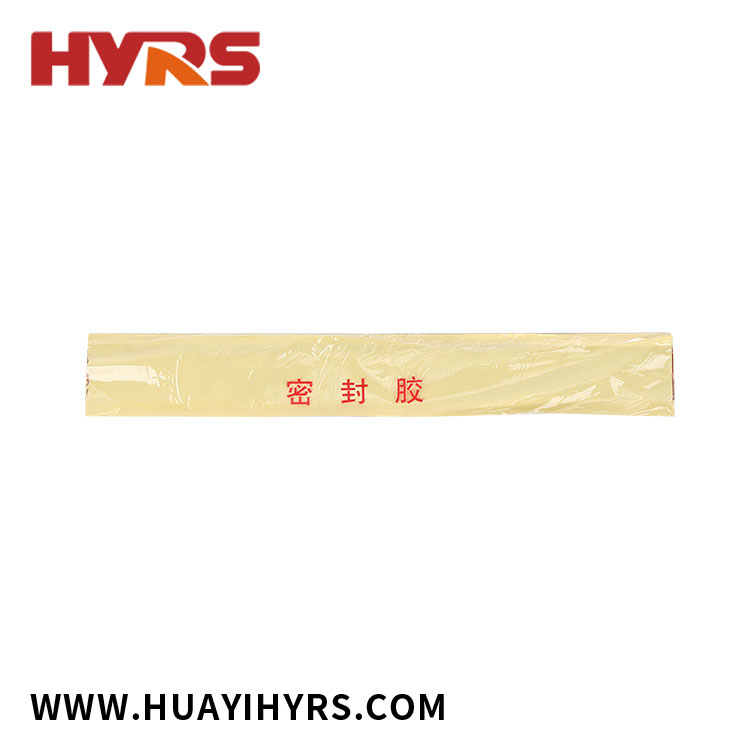Key characteristics of water-proof sealing mastics include
2024-04-10
Water-proof sealing mastics are materials used to create watertight seals in various applications, primarily in construction, plumbing, and other industries where waterproofing is essential. These mastics typically come in the form of pastes, caulks, or tapes and are designed to adhere to various surfaces, such as concrete, metal, wood, plastic, and glass.
Key characteristics of water-proof sealing mastics include:
1. Water Resistance: The primary function of these mastics is to prevent the passage of water through joints, gaps, or cracks.
2. Adhesion: They should adhere strongly to a variety of surfaces to form a durable seal.
3. Flexibility: To accommodate movement in structures without compromising the seal, these mastics often have some degree of flexibility.
4. Chemical Resistance: Many mastics are also resistant to chemicals commonly found in environments where they're used, such as in swimming pools, bathrooms, or industrial settings.
5. Ease of Application: Depending on the type, they can be applied using a caulking gun, trowel, or by simply peeling off a backing strip.
6. Curing Time: The time it takes for the mastic to fully cure and form a waterproof seal varies depending on the formulation.
7. Temperature Resistance: Some mastics are designed to withstand extreme temperatures without degrading or losing their sealing properties.
Types of water-proof sealing mastics include:
- Silicone: Silicone-based mastics are popular for their flexibility, durability, and resistance to UV radiation. They adhere well to various surfaces and are often used in plumbing, glass, and metal applications.
- Polyurethane: Polyurethane mastics offer excellent adhesion and flexibility. They are commonly used in construction joints, expansion joints, and roofing applications.
- Acrylic: Acrylic mastics are easy to apply and paintable. They are suitable for interior sealing applications where flexibility is not a critical requirement.
- Butyl Rubber: Butyl rubber mastics are known for their excellent water resistance and adhesion properties. They are often used in outdoor applications such as sealing around windows, doors, and roofing.
- Bitumen-based: Bitumen-based mastics are typically used in roofing and waterproofing applications. They offer good water resistance and are often applied in multiple layers to form a robust waterproof barrier.
When choosing a water-proof sealing mastic, it's essential to consider the specific requirements of your application, including the substrate material, environmental conditions, and desired longevity of the seal.



